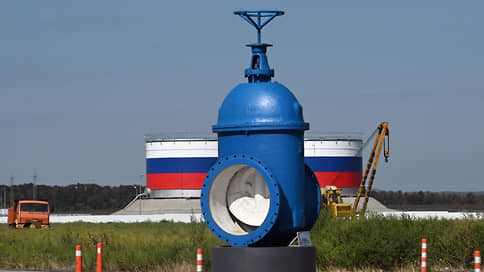Russia increased oil exports in September
[ad_1]

As Kommersant learned, Russia increased seaborne oil exports in September, which reached 3.34 million barrels per day (b/d) – this is more than in July and August, but still less than in June. According to the parameters of the voluntary reduction in exports, Russian supplies in September, under an agreement with Saudi Arabia, could increase to 3.4 million bpd and remain at this level until the end of the year. However, uncertainty regarding protracted repairs at refineries may prompt the Russian Federation to increase exports even more, otherwise oil companies will have to reduce production.
Russian oil exports by sea in the first ten days of September amounted to about 3.34 million b/d compared to 3.22 million b/d in August, according to Kpler data (available to Kommersant). Thus, the Russian Federation is restoring its exports after in July it reached its minimum value for the year – 3.1 million bpd. Russia, by agreement with Saudi Arabia, has taken on voluntary obligations to reduce oil supplies abroad by 500 thousand bpd by adjusting Transneft’s export schedule for the third quarter.
The reduction in supply made it possible to sharply reduce the discount of Urals to Brent, which in August, according to the Ministry of Finance of the Russian Federation, amounted to $12.2 per barrel compared to more than $40 per barrel in December 2022. In August, the price of Urals was $74 per barrel, which, coupled with the weakening of the ruble, led to an increase in oil and gas budget revenues and allowed the Ministry of Finance to return to estimating the budget deficit at around 2% of GDP for the year, although back in the summer, Finance Minister Anton Siluanov allowed the deficit to expand to 2. 5%. In August, the Ministry of Finance, due to exceeding the planned level of oil and gas revenues, began replenishing the National Welfare Fund, which until now this year, on the contrary, was spent to cover the budget deficit.
The reduction in oil exports in the summer months was relatively painless for Russian oil companies, since high demand for fuel allowed them to increase oil refining, which the authorities also pushed them to do. However, in the fall, refineries undergo repairs, which has left oil companies with an alternative: either increase exports or reduce production. Therefore, since September, Russia has reduced the size of the voluntary reduction in exports from 500 thousand b/d to 300 thousand b/d. However, it is not yet clear whether oil companies will be able to meet even these parameters without reducing production, which is currently at about 10.7 million bpd. Deputy Prime Minister Alexander Novak in early September admitted the possibility of some reduction in production, noting that this would depend on how much the industry can move forward with repairs at its refineries in conditions where the domestic fuel market still remains scarce.
Repairs at refineries have already led to a reduction in refining in the first week of September to 5.52 million b/d (versus 5.55 million b/d in August). Thus, repairs are taking place at large Rosneft plants – Ryazan and Saratov, and Gazprom’s Astrakhan gas processing plant has not yet completed its protracted repairs.
Growing differentials in the cost of gasoline and diesel fuel on the domestic market and export netback, as well as the possible reset of damper payments in September (due to exceeding indicative prices) could reduce the attractiveness of oil refining and create conditions for increasing oil exports, says Sergei Kondratyev from the Institute of Energy and Energy finance. In connection with planned repairs at refineries in September, seaborne oil exports may increase even further, the expert believes, given that demand in foreign markets remains strong. Sergei Kondratyev notes that although buyers of Russian oil in Asia are concerned about its rise in price above the level of the “ceiling” imposed by the West, they continue to buy it, since alternatives are more expensive.
[ad_2]
Source link





